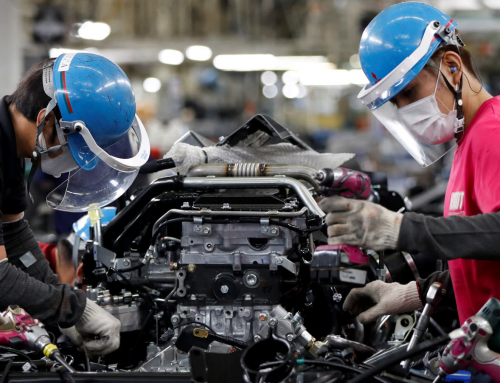
Intellectual Property Office to cut processing time from 2 to 4 years to as little as 6 months
The Intellectual Property Office of Singapore (Ipos) is to fast-track artificial intelligence-related patent applications to push the Republic’s efforts to develop its digital economy.
The agency announced yesterday that applications will now take as little as six months to be processed rather than the usual two to four years. It said this will make Singapore the fastest country in the world for such procedures.
However, the United States Patent and Trademark Office has, since 2012, offered a fast-track option to grant patents within 12 months for an additional fee of between US$1,000 (S$1,360) and US$4,000. According to its website, its programme is now granting patents in an average of six months.
An Ipos spokesman noted that in Singapore’s case, there will be no additional fee for the service, with “straightforward” cases continuing to cost around $2,400.
Examples of inventions that would qualify include those related to image recognition, speech and voice recognition, natural language processing and autonomous systems.
The Singapore Government released a plan last year calling for ministries and their related agencies to adopt at least one artificial intelligence (AI) project by 2023.
The first patent filings in AI were made in Japan in the early 1980s, according to the World Intellectual Property Organisation (Wipo).
Japan has since been overtaken by both the US and China, which are the two dominant markets for AI-related inventions.
Since 2014, China has been the world leader in the number of first patent filings in AI, followed by the US. Together, these three countries account for 78 per cent of the total patent filings, Wipo said in a report this year on technology trends.
As patent rights awarded in a particular country protect the invention only within the jurisdiction of that country, and not in other parts of the world, companies generally file patents in their biggest markets as they need to protect their innovations there.
Given Singapore’s relatively small population, it can make it less attractive to inventors who find registering their patent rights in every major jurisdiction financially challenging, said intellectual property lawyer Nicholas Lauw of Rajah & Tann.
“While accelerating the grant of AI-related patents won’t cure that issue, many of these inventors need to have certainty that their inventions are patentable in order to seek funding,” Mr Lauw noted. “As patents generally take much longer than six months to grant, inventors may choose to obtain patents for their inventions in Singapore first because they can then go to investors with a granted patent in a much shorter time.”
Intellectual property lawyer Alban Kang from Bird & Bird ATMD pointed out that as Singapore is less restrictive when it comes to some software-related patents, companies may use the filing in Singapore as a stepping stone to speed up their subsequent filings in other countries.
“Accelerating AI-related patents would attract major companies to file such AI-related patents (here). This would be in line with the government policy of making Singapore a regional IP hub,” he added.
Source: https://www.straitstimes.com/tech/singapore-to-fast-track-ai-patent-applications






